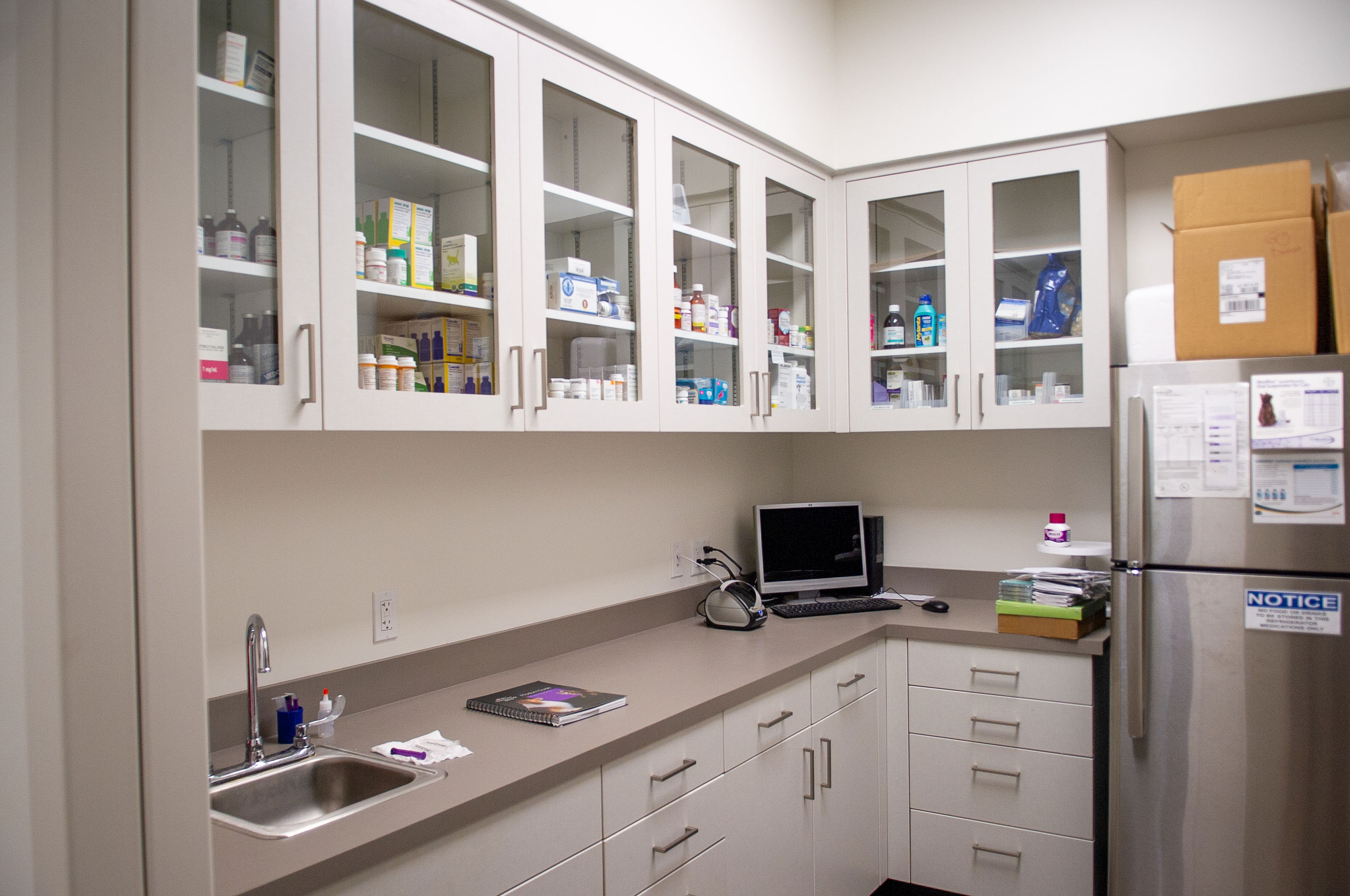If you’re like a lot of cat owners, you know your cat’s daily routine. If you notice your cat is not following usual activities, or if you see a change in behavior patterns, those could be subtle but important clues that your cat is sick. As a cat parent, it’s time for you to step in and get your cat to the vet.
Behavioral changes are nothing to fool around with. When your cat starts to hide instead of purring on the windowsill, it’s time to find out why. Cats are so good at hiding pain and illness that even the smallest changes in their behavior can be a sign of a serious problem.
If our veterinarian at Cat Care Center of Baton Rouge discovers that your cat has a short term illness or an ongoing chronic health issue, your kitty may need prescription medication and it will be your job to give it to them. Giving medication to a cat can be challenging when they don't want to cooperate. At Cat Care Center of Baton Rouge, we are here to explain how you can give your cat medication successfully, without stressing out your feline friend or yourself.
Find that special reward your cat just can't seem to resist in order to make giving medication something your cat will accept and even look forward to.
 Common Reasons and Prescriptions for Cat Medicine
Common Reasons and Prescriptions for Cat Medicine
Veterinarians prescribe medication to cats for various reasons. One of the most common reasons cats are treated with medication is for conditions such as IBD (inflammatory bowel disease). This type of condition usually requires daily medications and a special prescription cat food along with lots of TLC.
To make things easier on you and your pet, cat medications can be compounded into a flavored tab or a flavored liquid by our online pharmacy for easier administration. And who doesn’t like salmon flavor?! Our veterinary technicians will train you on what to do and will help you manage your cat’s medication schedule.
Another common reason for giving your cat medication is for infections. Whether the infection is from a wound or some other reason, antibiotics are used for a specific period of time until the infection is gone and your cat is up to his old tricks again.
In some cases, pain medications are needed to keep your cat comfortable and pain-free for a period of time. A little extra care and attention, fluffing of the cat bed, and some gentle petting may help the medicine go down easier.
With proper instruction from our veterinary team, you can be successful at giving your cat medication. And at the end of the day, you know you’ve done your best to make your buddy feel comfortable throughout the healing process.
Cats who are hyperthyroid may be given a transdermal gel medication. In some cases this type of medication may be easier to apply for the pet owner.
Other common reasons your veterinarian may need to treat your cat with medications may include:
- Heart Disease
- Diabetes
- Kidney Disease
- Some forms of cancer such as intestinal lymphoma
- Hyperthyroidism
- Urinary Disease
- And others
What to Know About Giving Your Cat Medicine
If you have ever attempted to give your cat medication, you know it can be quite a challenge for both of you. We’re here to give you some tips to get the job done right the first time and still be buddies with your cat. Some cats may run and hide, while others may be curious. The following tips may help:
Tips on Giving your Cat Medication - Pills, Liquid, or Transdermal Gel
- For administering pills to your cat, you can use Pill Pockets. These are soft, tasty treats that you insert the pill into to disguise the cat medication.
- Pill guns are designed to place the pill on the back of the tongue where the cat is least likely to reject the medication. Always follow oral pill medications with food or water!
- Some medications are available in liquid form. Your veterinarian will talk to you about dosing and how to properly administer the liquid medication. Liquids can be compounded to a flavor your cat enjoys by our online pharmacy.
- Some medications are available as Transdermal Gels, meaning that they are applied topically like a lotion. With transdermal gets, it is important to understand the absorption rate and pay close attention to dosing.
If you have to medicate your cat for a long period of time, have a game plan. You will want to be prepared with a plan of action. While every cat is different when it comes to taking medications, most cats respond well to positive reinforcement when administering cat medications. See the above Cat Friendly link for examples and videos on feline friendly medication techniques. Don't hesitate to ask our staff our own unique ways we administer medications to our own cats and our patients.
What to Do When You Need to Refill Your Cat Prescription
At Cat Care Center, we are very happy to refill your cat medications in our hospital pharmacy when needed. Most medications will be present in our well-stocked pharmacy, however, through our online pharmacy we can offer a variety of forms for any particular medication. It is best to get your pet’s prescription filled at our veterinary hospital or our online pharmacy. This ensures that the product you are selecting has come from a true veterinary pharmaceutical company. Refills on your cat's medications will be able to be easily requested by calling our hospital or directly from our online pharmacy. Your pet may need to have occasional blood tests to make sure the correct dosage is being given safely throughout the prescribed treatment.
What is Prescription Cat Food?
Prescription cat food is formulated for specific health issues your cat may have. There are certain health conditions that will benefit from prescription cat foods. These foods are formulated by veterinary nutritionists. A variety of prescription foods are available in our hospital for your ease and convenience. We will go over proper ways to transition your cat from one diet to another in a safe manner. Come in and talk to our veterinarian about prescription cat diets today.
If you think you may be noticing a change in your cat’s behavior, please call our office at Cat Care Center of Baton Rouge and make an appointment. Even the smallest changes in behavior can indicate that your cat is facing a significant health problem and may need medication. If your cat is already on prescription medication and is our patient, we would be happy to supply you with refills. Talk to our veterinarian about prescription cat medication at your next appointment.
